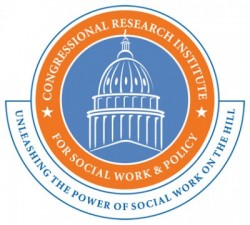It has taken me a minute to get my brain wrapped around the fact that Donald J. Trump will indeed be the next President of the United States. Much of my psyche is still in denial.
After a raucous and wearisome presidential campaign during which he lied about and vilified his opponent Secretary Hillary Clinton and hurled insults and platitudes to a myriad of constituencies, President-elect Trump faces the unenviable task of governing in the fractious nation he helped to create. There is little in his resume—we may never know what is in his income tax returns—or his history that would engender confidence that this man can actually lead a government. We are about to find out.
Trump’s comments following his 90-minute meeting with President Barack Obama were telling. He said he would be calling on the President regularly for counsel. Somehow I doubt that will happen. Not that President Obama would not be a willing advisor, Republicans will do everything in their power to prevent any further meetings with the President. They realize they have a novice in the cockpit of a sophisticated aircraft and they intend to take him by the hand and lead him to a successful flight. The problem is none of them know how to fly the plane which is why the middle class is in the state that it is.
Policies advanced by Republicans beginning with Ronald Reagan’s assault on unions and his promotion of supply-side tax cuts have contributed to economic inequality, slow growth, and stagnant wages and income for middle class families. Trump’s economic agenda promises more of the same. They have nothing for average working families in America. Their agenda of deregulation, opening more federal land to oil exploration, and even rebuilding our infrastructure, will not bring steel mills back to Pennsylvania or factories back to the Midwest. Even if they were able to, much of that labor will be done by machines and technology.

Protesters at Inner Harbor in Baltimore.
On Saturday, I had the opportunity to speak to students from Maryland schools of social work. I told them that the Democratic Party has failed to provide a compelling vision of the America they would like to see. We know Republican policies have led to economic inequality and are largely responsible for the angst that caused white working class Americans to vote for Donald Trump. They have bought the story that government is the problem and Democrats want more government involvement. These disaffected voters have no idea who or what they voted for when they decided to back Donald Trump; they wanted change from the status quo. Unfortunately, Hillary Clinton represented the status quo. They did not realize policies promoted by President Obama have begun to turn the tide in their favor and would have done more had Republicans in Congress not blocked them at every turn. The few policies Obama was able to enact may soon be overturned.
When I asked how many students were thinking about what the United States would be 30 or 40 years down the road, about a third of the 60 to 70 students present raised their hands. I was encouraged when about three-quarters of the students raised their hands when I asked who among them were ready to be leaders. A similar number raised their hands to indicate they are prepared to take action now. This was not surprising because these millennials got up early on a Saturday morning to attend a day-long social work conference. Veteran social workers must work with these young people to harness their youthful enthusiasm to be difference makers. They need our guidance. Civic engagement is sorely needed, protests not so much.
Protesters around the country are expending a lot of energy that might have been channeled more productively before the election. Certainly their voices should be heard but had their dynamism been used to get more young people to the polls on Election Day, their protests may not have been warranted. Hillary Clinton will get the most votes in the 2016 presidential election but will lose in the Electoral College. Her campaign failed to energize African Americans, Latinos and young voters in the numbers needed in key states to overcome the surge in anti-establishment voters.
Young progressive voters may regret not doing enough to elect Clinton and prevent the appointment of conservative justices to the Supreme Court. They may regret missing an opportunity to put an end to supply-side tax cuts and their resulting economic inequality. They will more than likely regret what a Republican administration will mean for global warming and the environment. Some may rethink their votes for Gary Johnson or Jill Stein. They will soon understand more distinctly how much voting matters.
Written By Charles E. Lewis Jr., Ph.D
Trump’s Election Proves How Much Voting Matters was originally published @ Charles Lewis – Congressional Research Institute for Social Work and Policy and has been syndicated with permission.
Our authors want to hear from you! Click to leave a comment
Related Posts






